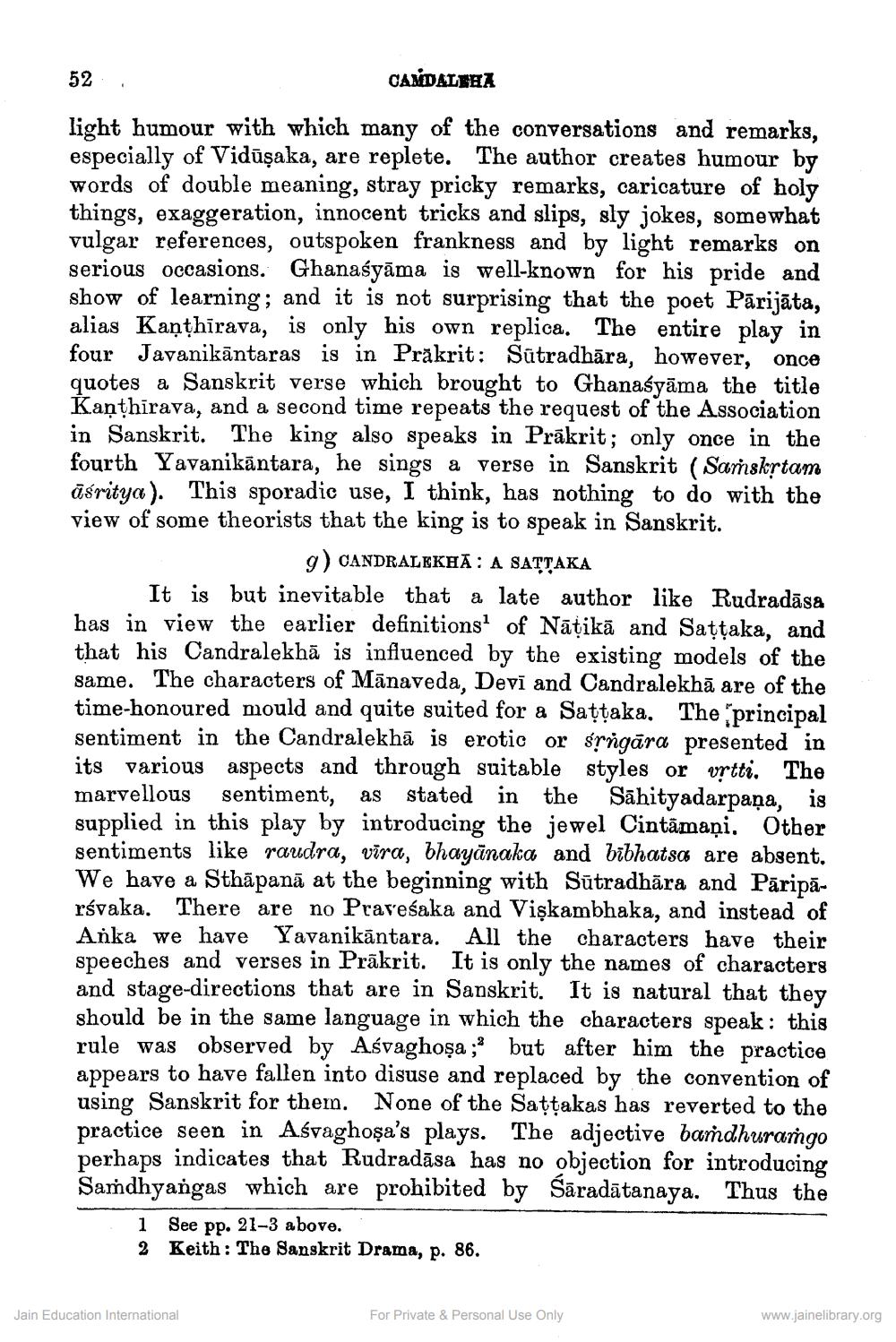________________
CAMDALEHA
light humour with which many of the conversations and remarks, especially of Vidūṣaka, are replete. The author creates humour by words of double meaning, stray pricky remarks, caricature of holy things, exaggeration, innocent tricks and slips, sly jokes, somewhat vulgar references, outspoken frankness and by light remarks on serious occasions. Ghanaśyama is well-known for his pride and show of learning; and it is not surprising that the poet Pārijāta, alias Kanthirava, is only his own replica. The entire play in four Javanikāntaras is in Prakrit: Sutradhara, however, once quotes a Sanskrit verse which brought to Ghanasyama the title Kanthirava, and a second time repeats the request of the Association in Sanskrit. The king also speaks in Prakrit; only once in the fourth Yavanikäntara, he sings a verse in Sanskrit (Samskṛtam asritya). This sporadic use, I think, has nothing to do with the view of some theorists that the king is to speak in Sanskrit.
52
9) CANDRALEKHĀ: A SAṬṬAKA
It is but inevitable that a late author like Rudradāsa has in view the earlier definitions1 of Natika and Saṭṭaka, and that his Candralekha is influenced by the existing models of the same. The characters of Manaveda, Devi and Candralekha are of the time-honoured mould and quite suited for a Saṭṭaka. The principal sentiment in the Candralekha is erotic or sṛngara presented in its various aspects and through suitable styles or vṛtti. The marvellous sentiment, as stated in the Sahityadarpaṇa, is supplied in this play by introducing the jewel Cintamani. Other sentiments like raudra, vira, bhayanaka and bibhatsa are absent. We have a Sthapana at the beginning with Sutradhara and Paripărávaka. There are no Praveśaka and Viskambhaka, and instead of Anka we have Yavanikantara. All the characters have their speeches and verses in Prakrit. It is only the names of characters and stage-directions that are in Sanskrit. It is natural that they should be in the same language in which the characters speak: this rule was observed by Asvaghosa; but after him the practice appears to have fallen into disuse and replaced by the convention of using Sanskrit for them. None of the Saṭṭakas has reverted to the practice seen in Asvaghosa's plays. The adjective bamdhuraṁgo perhaps indicates that Rudradasa has no objection for introducing Samdhyangas which are prohibited by Saradatanaya. Thus the
1 See pp. 21-3 above.
2 Keith: The Sanskrit Drama, p. 86.
Jain Education International
For Private & Personal Use Only
www.jainelibrary.org




